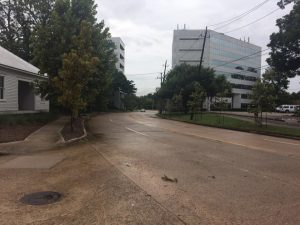Sep
01

Posted by nnlmneo on September 1st, 2017
Posted in: Blog

If you visited NEO Shop Talk this week, you know that blogger Karen Vargas shared how her Hurricane Harvey ordeal sharpened her evaluator skills. Her story ran on Monday, when Houston was still in the thick of the epic disaster. For at least 48 more hours, the family still carefully monitored the Buffalo Bayou water levels and determined alternative responses to employ if the flood waters reached her block. In the end, her family remained safe and dry throughout. Now that the rain stopped and the water is slowly receding, they believe imminent danger has passed.
Her story does highlight some lessons we can apply in evaluating “non-emergency” programs:
Karen’s last bit of advice: Always apply lessons learned from prior experiences and make note of new ones. From previous hurricanes, she knew to buy gas and water first. This time, she discovered that non-grocery retail stores, like department and drug stores, are better outlets for food when the masses are cleaning off shelves at the local grocery store.
The rest of the NEO staff was in close touch with Karen through the week, thanks to Skype and continued electricity at Karen’s end. We, too, are just starting to exhale. Our hearts go out to the Houstonians who were less lucky than our colleague and hope for the best possible holiday weekend for all.